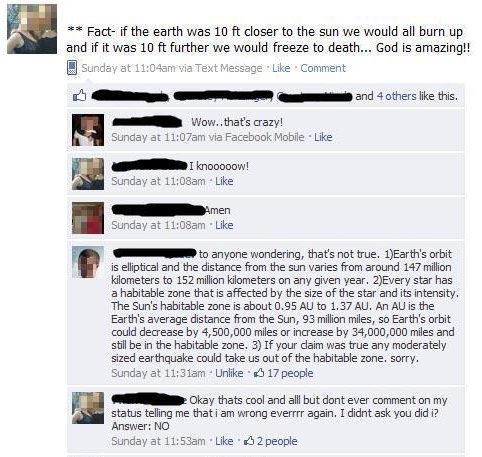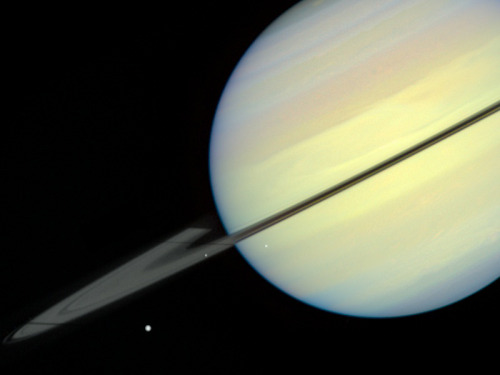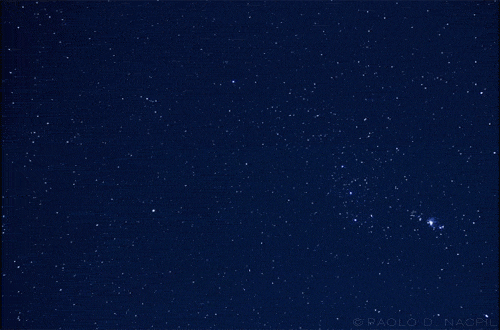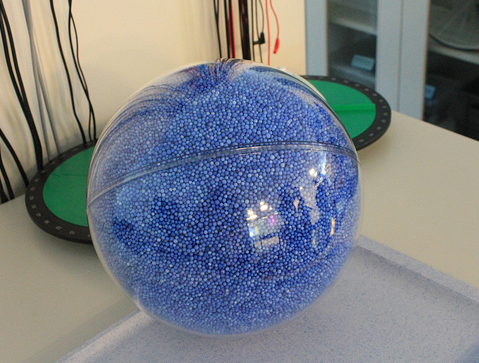Just The Facts!
Just the facts!

More Posts from Alitheastronomer and Others

MWC 922, The Red Square Nebula


The planet Saturn, observed by the Hubble Space Telescope.
That video is fascinating, I can't stop watching it!
Blizzard 2016 from Space
As an intense winter storm approaches the mid-Atlantic this weekend, our satellites watch from above. The storm is expected to produce a wade swath of more than 2 feet of snow in some areas.

The below supercomputer simulation crunched the data to provide a look at the flow of clouds from storm systems around the globe, including the developing blizzard across the eastern United States.
This storm won’t only have a snowy impact on the mid-Atlantic region, but will also cause severe weather in the Gulf Coast. Satellites observe extreme rainfall in the area.

Data from NASA-NOAA Suomi NPP satellite and NOAA’s GOES-East satellite are being used to create images and animation of the movement of this powerful storm. For updates, visit: http://www.nasa.gov/feature/goddard/2016/nasa-sees-major-winter-storm-headed-for-eastern-us

Make sure to follow us on Tumblr for your regular dose of space: http://nasa.tumblr.com

I'm adding this to the list of reasons I want to work there


This is Kjell Lindgren. He’s a NASA astronaut who just got back from 5 months on the International Space Station. There are two reasons why this picture is hilarious:
His wife is flawless and makes bad space puns to make him do household chores.
I have that shirt. Thousands of people have that shirt. That shirt is available at Target. Which means actual astronaut Kjell Lindgren, with his wardrobe already full of NASA-issued and logo-emblazoned clothes, was at Target, saw a NASA shirt, and was like, “Yes, I am buying this because this is what I want to spend my actual astronaut salary on.”
tl;dr NASA employs a bunch of fucking nerds

More cool space words:
Apastron: the point where two binary stars are farthest apart.
Azimuth: distance of an object in angular.
Bolide: an especially bright meteor, especially one that explodes in the atmosphere (also called fireballs!).
Catena: a chain or series of craters.
Ejecta: material that is strewn about a crater by an impact, usually a meteorite or other similar object.
Ephemeris: a table that lists the positions of the sun, moon, and planets by date.
Heliosphere: the magnetic bubble of space that contains our solar system, solar wind, and the entire solar magnetic field. It is so large it goes beyond pluto's orbit.
Meridian: an imaginary circle that goes through the north and south poles, and the zenith and nadir of a location.
Nadir: the point in the sky directly underneath you.
Nova: when a dying star suddenly flares in brightness. The star becomes thousands of times its original luminosity.
Prominence: an explosion on the surface of the Sun.
Singularity: the impossibly small space in the center of a black hole where density and gravity are infinite, and space-time curves infinitely.
Spicules: a jet of gas ejected from the sun's atmosphere that resembles grass.
Supernova: one of the most powerful forces in the universe. When a star uses up all of its fuel it ends its life in a spectacular and devastating explosion.
Terminator: line on a planetary body that separates the light side from the dark side.
Umbra: the darkest part of a shadow.
Zenith: the point in the sky directly overhead.
Zodiac: an imaginary belt across the sky that the sun, moon, and planets are always in. The zodiac is made up of 12 constellations.
pretty space words
aphelion - the point in the orbit of a planet, asteroid, or comet at which it is farthest from the Sun. astral - relating to or resembling the stars. caldera - a large volcanic crater, especially one formed by a major eruption leading to the collapse of the mouth of the volcano. celestial - positioned in or relating to the sky, or outer space as observed in astronomy. constellation - a group of stars forming a recognizable pattern. cosmos - the universe seen as a well-ordered whole. equinox - the time or date at which the sun crosses the celestial equator, when day and night are of equal length. faculae - bright patches that are visible on the Sun’s surface. lunation - the interval of a complete lunar cycle, between one new Moon and the next. interstellar - occurring or situated between stars. nebula - a cloud of gas and dust in outer space, visible in the night sky either as an indistinct bright patch or as a dark silhouette against other luminous matter. perihelion - the point in the orbit of a planet, asteroid, or comet at which it is closest to the Sun. synodic - relating to or involving the conjunction of stars, planets, or other celestial objects.

The Space Shuttle Columbia
Pause today to remember the Crew of STS-107, who all died on this day 13 years ago, February 1, 2003, when the Space Shuttle Columbia became unstable and disintegrated on re-entry over Texas. The Crew:
The Flight Commander was Rick D. Husband, a U.S. Air Force colonel and mechanical engineer, who piloted a previous shuttle during the first docking with the International Space Station on STS-96.
The Pilot was William C. McCool, a 1983 graduate of the United States Naval Academy in Annapolis, Maryland and U.S. Navy commander.
The Payload Commander was Michael P. Anderson, a U.S. Air Force lieutenant colonel. He was also a physicist and mission specialist who was in charge of the science mission.
The Payload Specialist Ilan Ramon was a colonel in the Israeli Air Force and the first Israeli astronaut.
The Mission Specialist was Kalpana Chawla, an Indian-born aerospace engineer who was on her second space mission. She was the first Indian woman in space.
The Mission Specialist was David M. Brown, a U.S. Navy captain trained as an aviator and flight surgeon.
The Mission Specialist was Laurel Blair Salton Clark, a U.S. Navy captain and flight surgeon. Clark worked on biological experiments.
The Space Shuttle Columbia was named after the poetic designation for the United States of America. This poetic name (based on Christopher Columbus, thought then as the sole discoverer of America) was meant to be both inclusive and a little bit nostalgic, in the sense that America could be embodied in a name. Clearly these seven astronauts and mission specialists embodied the best spirit of America, the inclusion of an Indian and Israeli the strongest symbol yet of what America can accomplish when unified to a common purpose. Special thought to William McCool, graduate of the USNA-I pass almost daily the ‘McCool Marker’, a memorial on the grounds of the USNA golf course to celebrate his achievements both as a Naval Aviator but also his accomplishments as a Midshipman, where he served as Captian of the Cross Country team his senior year. The marker is placed on the cross country course 16 minutes from the finish line of his fastest run on the Navy course.

This is a model of how many Earth’s can fit inside the sun.

The star cluster Westerlund 2
js
-
 mawaru-kagami liked this · 1 year ago
mawaru-kagami liked this · 1 year ago -
 scarymonsterstudio liked this · 1 year ago
scarymonsterstudio liked this · 1 year ago -
 wormholenavigation reblogged this · 2 years ago
wormholenavigation reblogged this · 2 years ago -
 h-isforhome-deactivated20261708 liked this · 3 years ago
h-isforhome-deactivated20261708 liked this · 3 years ago -
 spookside reblogged this · 3 years ago
spookside reblogged this · 3 years ago -
 dreamfyrebreath liked this · 4 years ago
dreamfyrebreath liked this · 4 years ago -
 coryy reblogged this · 4 years ago
coryy reblogged this · 4 years ago -
 craetaceous liked this · 4 years ago
craetaceous liked this · 4 years ago -
 higher-than-aegis-7 reblogged this · 4 years ago
higher-than-aegis-7 reblogged this · 4 years ago -
 silumgary liked this · 5 years ago
silumgary liked this · 5 years ago -
 el-anit liked this · 5 years ago
el-anit liked this · 5 years ago -
 ladii3taurus reblogged this · 5 years ago
ladii3taurus reblogged this · 5 years ago -
 kathryn-beaumont liked this · 5 years ago
kathryn-beaumont liked this · 5 years ago -
 heartclover liked this · 5 years ago
heartclover liked this · 5 years ago -
 dali-in-gallifrey reblogged this · 5 years ago
dali-in-gallifrey reblogged this · 5 years ago -
 dali-in-gallifrey liked this · 5 years ago
dali-in-gallifrey liked this · 5 years ago -
 zornofzorna-blog liked this · 5 years ago
zornofzorna-blog liked this · 5 years ago -
 burnt-kloverfield liked this · 5 years ago
burnt-kloverfield liked this · 5 years ago -
 probablyajedi reblogged this · 5 years ago
probablyajedi reblogged this · 5 years ago -
 probablyajedi liked this · 5 years ago
probablyajedi liked this · 5 years ago -
 andfurthermore liked this · 5 years ago
andfurthermore liked this · 5 years ago -
 caring9-blog1 liked this · 5 years ago
caring9-blog1 liked this · 5 years ago -
 sorryimbusyintroverting liked this · 5 years ago
sorryimbusyintroverting liked this · 5 years ago -
 crabrangoonluvr liked this · 5 years ago
crabrangoonluvr liked this · 5 years ago -
 hopelessly-vintage liked this · 5 years ago
hopelessly-vintage liked this · 5 years ago -
 imonly-me reblogged this · 5 years ago
imonly-me reblogged this · 5 years ago -
 peter-pot reblogged this · 5 years ago
peter-pot reblogged this · 5 years ago -
 shadowyuki liked this · 5 years ago
shadowyuki liked this · 5 years ago -
 pootfarts420 reblogged this · 5 years ago
pootfarts420 reblogged this · 5 years ago -
 pootfarts420 liked this · 5 years ago
pootfarts420 liked this · 5 years ago -
 ententionally liked this · 5 years ago
ententionally liked this · 5 years ago -
 alittlebratbrat liked this · 5 years ago
alittlebratbrat liked this · 5 years ago -
 no-common-place reblogged this · 5 years ago
no-common-place reblogged this · 5 years ago -
 vintagewhitehouse liked this · 5 years ago
vintagewhitehouse liked this · 5 years ago -
 maggierogers liked this · 5 years ago
maggierogers liked this · 5 years ago -
 please-step-on-me liked this · 5 years ago
please-step-on-me liked this · 5 years ago -
 bookshoplaura reblogged this · 5 years ago
bookshoplaura reblogged this · 5 years ago -
 garlic-gurl reblogged this · 5 years ago
garlic-gurl reblogged this · 5 years ago -
 beautiful-wickedness reblogged this · 5 years ago
beautiful-wickedness reblogged this · 5 years ago -
 golden-strands liked this · 5 years ago
golden-strands liked this · 5 years ago -
 connerys reblogged this · 5 years ago
connerys reblogged this · 5 years ago -
 jazzydoesstuff liked this · 6 years ago
jazzydoesstuff liked this · 6 years ago -
 jociluv reblogged this · 6 years ago
jociluv reblogged this · 6 years ago